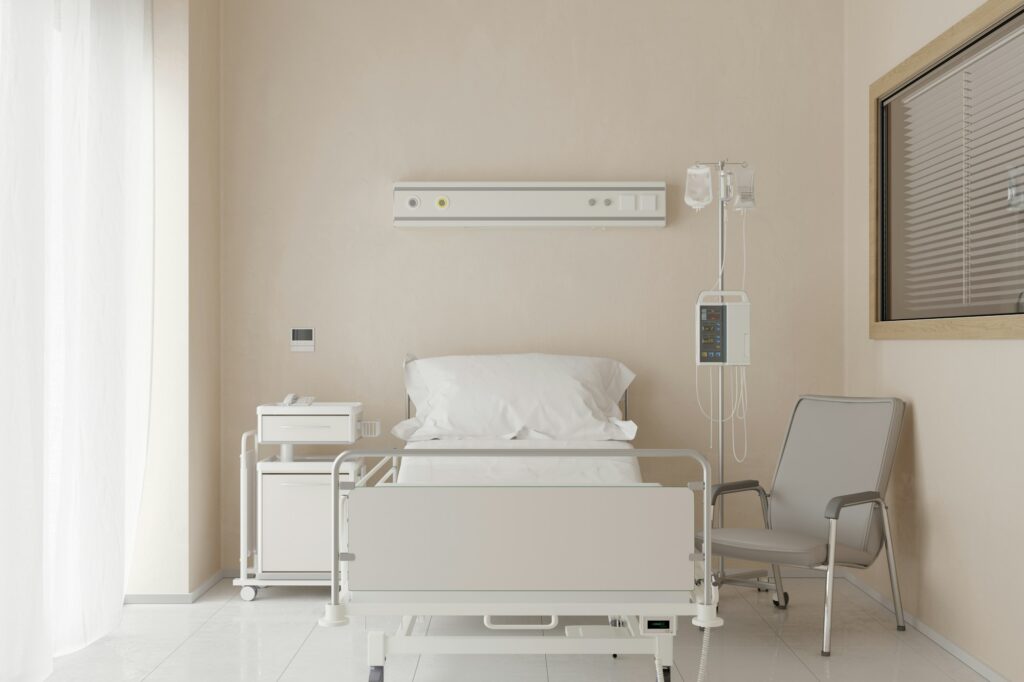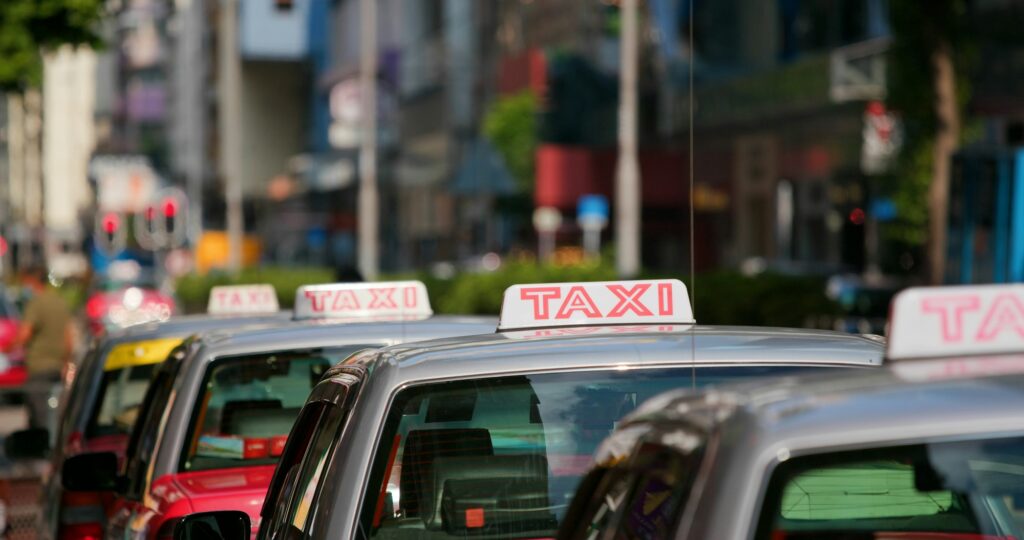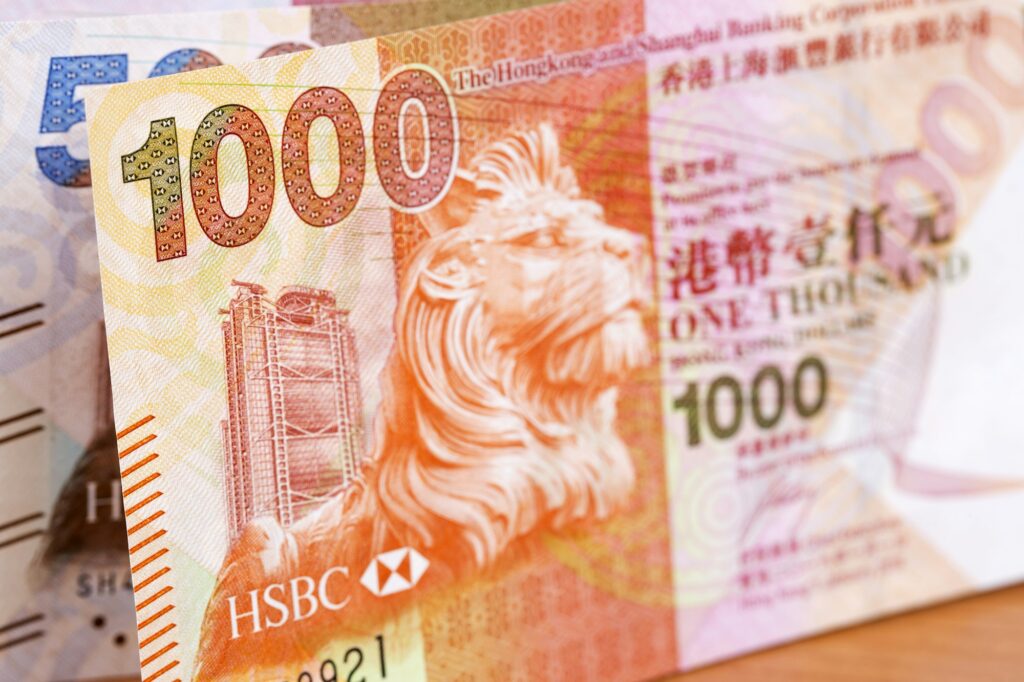Moving to Hong Kong: A Relocation Guide for Expat Families
Moving to Hong Kong is a life-changing experience, filled with excitement, new opportunities, and some challenges along the way. Whether you’re relocating with your family or starting fresh on your own, Moving to Hong Kong: A Relocation Guide for Expat Families is here to help you navigate the essentials and make your transition as smooth as possible. Let’s dive into everything you need to know about settling into this vibrant, fast-paced city!

1. Preparing for the Move
Before packing your bags, there are a few key steps to ensure a smooth relocation:
Visas and Immigration: As an expat, you’ll likely need an employment visa, a dependent visa (for family members), or a student visa (for children attending school). Ensure all necessary paperwork is processed in advance, as visa applications can take several weeks.
Health Insurance: While Hong Kong has excellent healthcare, private insurance is recommended for expats, as public hospitals can have long wait times. Look for comprehensive plans that cover your family’s medical needs, including doctor visits, emergencies, and maternity care.
Vaccinations: For most travelers and expats, there are no mandatory vaccinations specifically required for entry into Hong Kong. However, it’s always a good idea to ensure that your routine vaccinations are up to date, especially for long-term stays or if you’re moving with children.
2. Finding a Home
Hong Kong’s real estate market is one of the most expensive in the world, but there are options to fit a variety of lifestyles and budgets.
Each neighborhood in Hong Kong has its own unique vibe. Here are a few popular areas for expat families, ranging from the bustling city center to more affordable, spacious rural areas:
Mid-Levels: Conveniently located near the city center with easy access to schools, parks, and shopping, Mid-Levels is a popular choice for expats looking for a central, urban lifestyle.
Discovery Bay: This quiet, family-friendly area is known for its open spaces, international schools, and strong community atmosphere. It’s a great spot for families who want to be away from the city’s hustle and bustle but still have easy access to it via ferry.
Repulse Bay & Stanley: For those who love beachside living, these areas offer beautiful views, spacious homes, and proximity to several international schools. Perfect for families looking for an upscale lifestyle near the water.
Sai Kung: A more rural option for those looking for a quieter, village-style life. Known for its larger homes, outdoor spaces, and a relaxed vibe, it’s ideal for nature lovers and families seeking more space.
Tai Po: Located in the New Territories, Tai Po offers a more affordable option compared to the urban center, with village houses and larger living spaces. It’s great for families looking for quieter surroundings and more greenery, while still having access to good schools and amenities.
Sheung Shui: Another option in the New Territories, Sheung Shui offers a mix of modern apartment living and traditional village houses at more reasonable prices. It’s a good choice for those wanting larger homes and more outdoor space, with easy access to Shenzhen for cross-border travel.
Renting a Home:
Most expats rent their homes in Hong Kong. Expect to pay 2-3 months of rent upfront, plus a deposit. It’s common for leases to last one or two years, with an option to renew. Keep in mind that utilities (electricity, water, gas) are often not included in the rent, so budget for these additional costs.
Village houses in areas like Tai Po or Sheung Shui tend to offer more space, often with multiple floors and private outdoor areas, making them a great option for families. These are generally more affordable than the high-rise apartments in central areas but may involve longer commutes.
Furnishing Your Home:
Many rental properties come unfurnished, but Hong Kong offers a wide variety of furniture stores that cater to different styles and budgets. Popular options include IKEA, Pricerite, and more upscale brands like Indigo Living. You can also explore secondhand options, as expats frequently sell furniture before relocating.
For those moving into village houses, consider exploring furniture options that suit the more spacious layouts, as you’ll have the room to accommodate larger furnishings than typical urban apartments.

3. Schools & Education
Finding the right school for your children is often a top priority for expat families. Hong Kong offers a wide range of excellent schools, including local, international, and Direct Subsidy Scheme (DSS) schools.
International Schools:
Many expats opt for international schools that offer familiar curricula such as the International Baccalaureate (IB), British, or American systems. Some of the top international schools include Hong Kong International School (HKIS), the French International School, and the English Schools Foundation (ESF). These schools are renowned for their quality education, but they tend to be expensive, with tuition fees that can rival those in major global cities.
Local Schools:
If you prefer that your children immerse themselves in the local culture, Hong Kong’s local schools offer a rigorous education, with high academic standards. However, most local schools teach primarily in Cantonese or Mandarin, which can be a challenge for non-native speakers. Still, for families who want to integrate more into local society, this can be a valuable option.
Direct Subsidy Scheme (DSS) Schools:
An excellent middle ground between local and international schools is the Direct Subsidy Scheme (DSS) schools. These schools offer a unique blend of local and international education, with many teaching in English or using a bilingual approach. DSS schools are partially government-funded but operate with greater autonomy, allowing them to adopt a more flexible curriculum and teaching style.
One of the advantages of DSS schools is that they are generally more affordable than international schools, making them a great option for expat families looking for a quality education without the high costs. A well-known DSS school is Tai Po Sam Yuk Secondary School, located in the New Territories. Tai Po Sam Yuk offers a diverse curriculum with English as the medium of instruction for many subjects, and it places a strong emphasis on character development and holistic education.
DSS schools are a fantastic alternative for families who want their children to receive an education in English while also benefiting from a more culturally integrated environment than traditional international schools.
Application Process:
Regardless of which type of school you choose, it’s important to apply early! International schools are highly competitive, and waiting lists can be long. DSS schools, while often more accessible, may still have limited spaces. Be prepared to submit various documents, including previous school reports, references, and sometimes entrance exams or interviews.
4. Healthcare System
Hong Kong offers world-class healthcare, with both public and private options available. As an expat, understanding how to navigate the system and choosing between public and private healthcare can make a big difference in your overall experience.
Public Healthcare:
Hong Kong’s public healthcare system is efficient and offers high-quality care at a low cost, but non-urgent cases may face long wait times. Public hospitals and clinics provide services in English, but most expats opt for private healthcare to avoid the delays.
Private Healthcare:
Many expats prefer private healthcare for faster service, more personalized care, and access to English-speaking specialists. Private healthcare in Hong Kong is known for its excellent standards, though it comes at a higher cost than the public system. If you’re considering private care, it’s essential to secure comprehensive health insurance that covers hospital stays, outpatient visits, and specialist consultations.
Here are some of the top private hospitals and clinics in Hong Kong:
- Gleneagles Hospital: Known for its state-of-the-art facilities and a wide range of specialist services.
- Matilda International Hospital: A favorite among expats for its personalized care, with beautiful views and private rooms.
- Hong Kong Adventist Hospital: Offers a wide array of medical services and is known for maternity care.
- Central Health Medical Practice: A group practice offering family medicine and specialized care in the heart of Hong Kong.
How to Register with a Doctor:
Whether you choose public or private healthcare, it’s important to register with a local general practitioner (GP) or family doctor for routine checkups and to coordinate any specialist referrals. Here’s how to do it:
Choosing a Doctor:
- Public Sector: You can register with a doctor at a local public clinic by visiting the nearest general outpatient clinic. These clinics provide primary care services, and registration can be done in person.
- Private Sector: Many expats choose to register with a private clinic. Private healthcare providers like Central Health and The London Medical Clinic are popular options for English-speaking doctors.
Documentation:
- In the public sector, you will need your Hong Kong ID card or passport (if you don’t have your HKID yet), and some clinics may require proof of address.
- In the private sector, no formal registration is needed beyond booking your first appointment, but it’s recommended to check if the clinic accepts your insurance plan.
Making an Appointment:
- For public clinics, it’s often possible to walk in, though it’s better to make an appointment to avoid long waits. You can book appointments through the eHealth App or by calling the clinic directly.
- For private doctors, most clinics offer online or phone booking. Private clinics tend to have shorter wait times, and many offer same-day appointments.
Specialists: If you need to see a specialist, your GP can refer you to one. In the public system, you’ll need a referral to see a specialist. In the private system, you can generally book a specialist directly without a GP referral, although it is often better to go through your family doctor for coordinated care.
With both public and private options available, expats in Hong Kong have access to excellent healthcare services. Choosing the right approach will depend on your preferences for wait times, personalized care, and budget. Having health insurance that covers private care is highly recommended to ensure you and your family receive the best treatment available.

5. Transportation
Getting around Hong Kong is straightforward and efficient:
MTR (Mass Transit Railway): The MTR is the most convenient way to travel around the city, connecting major neighborhoods and business districts. It’s clean, reliable, and inexpensive.
Buses and Minibuses: These are great for reaching areas not covered by the MTR, such as rural parts of Hong Kong. Routes are extensive, but minibuses can be tricky for newcomers as they don’t always stop at every destination automatically.
Taxis: Taxis are relatively affordable and available throughout the city. Just make sure to carry cash, as many drivers do not accept credit cards.
Driving: While public transport is excellent, some expat families choose to drive. If you have a valid license from your home country, you may be able to convert it to a Hong Kong license without taking a driving test.

6. Cost of Living
Hong Kong is known for its high cost of living, particularly when it comes to housing. However, it’s important to remember that many expat salaries reflect the elevated expenses, and there are ways to manage costs depending on your lifestyle choices. Here’s an overview of the primary living expenses to consider when moving to Hong Kong:
Housing:
Housing is often the most significant expense for expats in Hong Kong. Rental prices vary widely depending on location, property size, and the type of accommodation. Premium neighborhoods like Mid-Levels, Repulse Bay, and Discovery Bay tend to have higher rents due to their proximity to international schools, amenities, and central areas. For more affordable options, areas in the New Territories like Tai Po, Sheung Shui, or Sai Kung offer larger living spaces, including village houses, at more reasonable prices, though they may involve longer commutes to the city center.
Many expats choose between high-rise apartments in central locations and village houses in more rural areas. Factors that affect housing prices include proximity to public transport, schools, and lifestyle amenities like parks or beaches.
Utilities (Electricity, Water, Gas):
Utility costs in Hong Kong depend on the size of your home and your consumption. Electricity bills can fluctuate significantly depending on the season, as air conditioning is heavily used during the hot and humid summer months. Water and gas costs are generally moderate but can vary depending on your family size and usage patterns.
Expats should also budget for internet and mobile phone plans, which are readily available from multiple providers offering various packages to suit different needs.
Groceries:
Grocery expenses in Hong Kong depend on where you shop and whether you prefer imported or local products. International supermarkets like City’super and Oliver’s stock a wide range of imported goods, but at higher prices. For more affordable groceries, local supermarkets like ParknShop and Wellcome offer a good selection of both local and international products.
For fresh produce, seafood, and meats, visiting local wet markets can be a more economical option. Many expats also take advantage of delivery services, which offer convenience but may add extra costs depending on the provider.
Dining Out:
Hong Kong is a culinary hub, offering everything from affordable local street food to high-end international dining. Eating at local restaurants and cafes can be a more budget-friendly option, especially if you enjoy traditional Hong Kong dishes like dim sum, noodles, and congee. On the other hand, dining at international restaurants or Western-style eateries tends to be more expensive, especially in central areas like Central, Soho, or Tsim Sha Tsui.
For expats who enjoy eating out regularly, it’s easy to find a wide range of options at different price points. Many locals and expats alike also take advantage of Hong Kong’s diverse food delivery services for convenience.
Transportation:
Hong Kong’s public transportation system is highly efficient, affordable, and covers most parts of the city. The MTR (Mass Transit Railway) is the backbone of the transport system, connecting major residential, business, and shopping districts. In addition, buses, minibuses, and trams provide access to areas not serviced by the MTR.
Owning a car in Hong Kong can be expensive due to parking costs and the price of petrol, but it may be more convenient for families living in areas like Sai Kung or the New Territories where public transport options may be limited. Many expats, however, find the public transport system more than sufficient for getting around.
Education:
For expat families, education is a key consideration in the cost of living. Many choose to send their children to international schools, which offer curricula like the IB, British, or American systems. Tuition fees for international schools are generally high, but Direct Subsidy Scheme (DSS) schools, which offer a balance between local and international education, can be a more affordable alternative.
Schools often have additional costs for uniforms, books, and extracurricular activities, so it’s essential to budget for these when planning your family’s expenses.
Healthcare:
Hong Kong has both public and private healthcare options. While public healthcare is affordable and of high quality, many expats opt for private healthcare due to shorter waiting times and more personalized service. Private healthcare can be more expensive, so securing comprehensive health insurance is recommended.
Health insurance plans can vary greatly in terms of coverage, so it’s important to research and choose one that suits your family’s needs, covering doctor visits, hospitalization, and specialist consultations.
Entertainment and Lifestyle:
Entertainment and leisure activities in Hong Kong range from affordable to luxurious. Families can enjoy free or inexpensive outings to parks, beaches, and hiking trails. For those who enjoy the arts, sports, and nightlife, Hong Kong offers a wide variety of paid activities, including cinemas, theatre performances, and live music events.
Gym memberships, fitness classes, and sports clubs are available, but their costs can vary depending on the type of membership and facilities. Expats who enjoy social clubs or memberships at private clubs should also budget for these fees.
Final Thoughts on Managing Expenses:
The cost of living in Hong Kong can be high, especially in terms of housing and international schooling. However, with careful planning and budgeting, it’s possible to balance these expenses by adjusting your lifestyle choices. Whether you opt for a smaller apartment in a central location or a larger village house in the New Territories, there are plenty of ways to enjoy the vibrant lifestyle Hong Kong offers.

7. Language & Culture
While Cantonese is the official language in Hong Kong, English is widely spoken, particularly in business, government, and expat communities. Most official documents, signage, and public transportation information are bilingual, making it easier for non-Cantonese speakers to navigate daily life. However, learning a few basic Cantonese phrases can make a significant difference in your interactions with locals and help you feel more connected to Hong Kong’s rich culture.
Basic Cantonese Phrases to Learn:
Even if most people you encounter speak English, using simple Cantonese phrases shows respect and can help build rapport with locals:
- Hello: 你好 (Néih hóu)
- Thank you: 唔該 (Mh̀gōi) – for services, 多謝 (Dōjeh) – for gifts or kindness
- Yes: 係 (Haih)
- No: 唔係 (Mh̀haih)
- Goodbye: 拜拜 (Bāaibaai) – informal, 再見 (Joigin) – formal
- Excuse me: 唔該 (Mh̀gōi)
Taking the time to learn these and other simple expressions can go a long way in day-to-day situations, especially in markets, local shops, or taxis.
Cultural Etiquette:
Hong Kong is a unique blend of Eastern and Western cultures, with deep-rooted traditions alongside a modern, cosmopolitan lifestyle. While the city is generally accepting of different customs, it’s important for expats to be mindful of local etiquette. Here are some cultural norms to be aware of:
1. Greeting and Personal Interactions:
- Handshakes: A handshake is the common form of greeting in business or formal settings. It tends to be lighter than in Western cultures, and it’s polite to nod slightly when introducing yourself.
- Addressing People: Use titles (such as Mr., Mrs., or Miss) and surnames unless invited to use first names. In more formal settings, it’s customary to address people by their professional titles.
2. Exchanging Business Cards:
Business cards are an important part of professional interactions in Hong Kong. Here’s the etiquette for handling them:
- Offering and Receiving: Always offer and receive business cards with both hands, as this shows respect. Take a moment to look at the card before putting it away. Never write on a business card or handle it carelessly in front of the person who gave it to you.
3. Respect for Elders:
In Chinese culture, respecting elders is deeply ingrained. When interacting with older people, it’s important to show deference. Simple gestures such as standing when an elder enters the room or offering them a seat can demonstrate respect.
4. Gift Giving:
- Giving Gifts: If invited to someone’s home or attending a formal event, it’s customary to bring a small gift, such as fruit, cakes, or fine tea. Avoid giving clocks or sharp objects, as these are considered bad luck.
- Receiving Gifts: When receiving a gift, it’s polite to refuse the gift once or twice before accepting it, as immediate acceptance can come across as impolite or greedy. Gifts are often not opened in front of the giver.
5. Removing Shoes:
When entering someone’s home, it is customary to remove your shoes. Hosts may offer you slippers to wear inside. This practice is seen as a way to keep the home clean and is a sign of respect.
6. Dining Etiquette:
- Sharing Meals: Dining in Hong Kong, particularly in Chinese restaurants, is a communal experience, with shared dishes placed in the center of the table. Wait until the host begins eating before starting.
- Chopsticks: When using chopsticks, avoid sticking them upright in a bowl of rice, as this resembles incense used at funerals and is considered bad luck. Instead, place them on the provided chopstick rest or horizontally across your bowl.
- Pouring Tea: In group settings, it’s customary to pour tea for others before yourself. If someone pours tea for you, a light tap of your fingers on the table shows gratitude.
7. Queueing:
Hong Kongers place great importance on queuing and waiting your turn, whether it’s at a bus stop, in shops, or in government offices. Cutting the line is considered very rude and can cause confrontation.
8. Handling Money:
- Cash and Cards: While credit cards are widely accepted, cash is still frequently used in many small shops, markets, and restaurants. When handing over money or a credit card, try to use both hands, especially in more formal or traditional settings.
9. Public Behavior:
- Respecting Space: Hong Kong is a densely populated city, and respecting personal space in public is important. Avoid loud conversations on public transport, and make sure to follow rules such as “no eating” on the MTR.
- Tipping: Tipping is not a strong custom in Hong Kong, though it is appreciated in some settings, especially in restaurants where service charges are not included. A small tip or rounding up the bill is usually sufficient.
Respecting Local Customs:
Hong Kong’s unique blend of traditional Chinese values and Western influences creates a dynamic cultural environment. Expats who take the time to learn and respect local customs will find that they integrate more smoothly into daily life and interactions.
Whether it’s practicing a few Cantonese phrases, being mindful of etiquette at work, or understanding the unspoken rules at a dinner table, these small gestures can help you build positive relationships and show respect for Hong Kong’s rich culture.
8. Settling In
Lastly, it’s essential to find your community. Hong Kong has a large expat network with plenty of opportunities to meet other families, whether through school, social clubs, or online forums. Don’t be afraid to ask for advice, join playgroups, or attend community events—building connections will make Hong Kong feel like home.
Ready to make the leap? Living in Hong Kong is a unique and rewarding experience. By preparing ahead of time and embracing all this incredible city has to offer, you’ll be settling into your new home in no time! We hope you enjoyed this Moving to Hong Kong: A Relocation Guide for Expat Families. P
Check out our blog here
Please note, this information is intended as a general guide and may not cover every situation; always be mindful of individual preferences and local variations.
